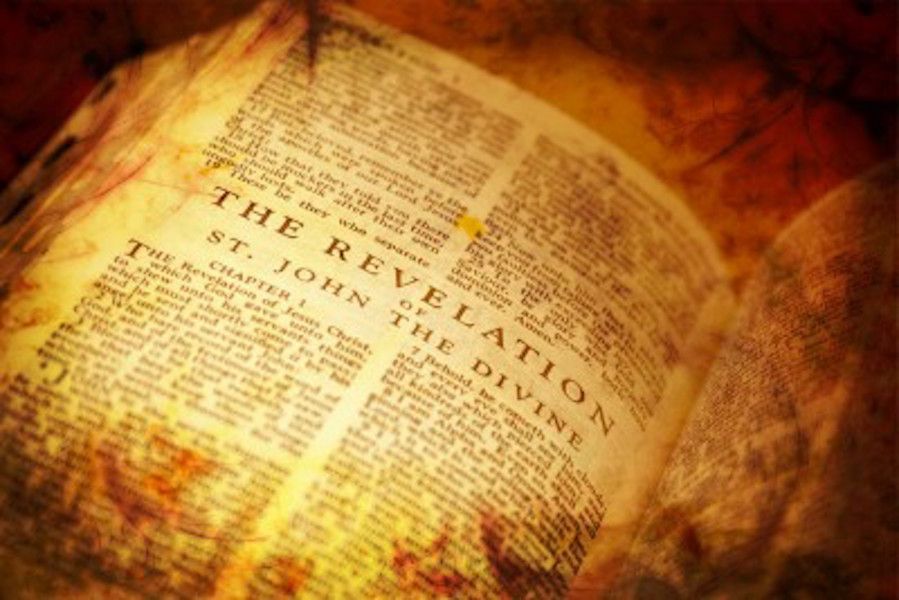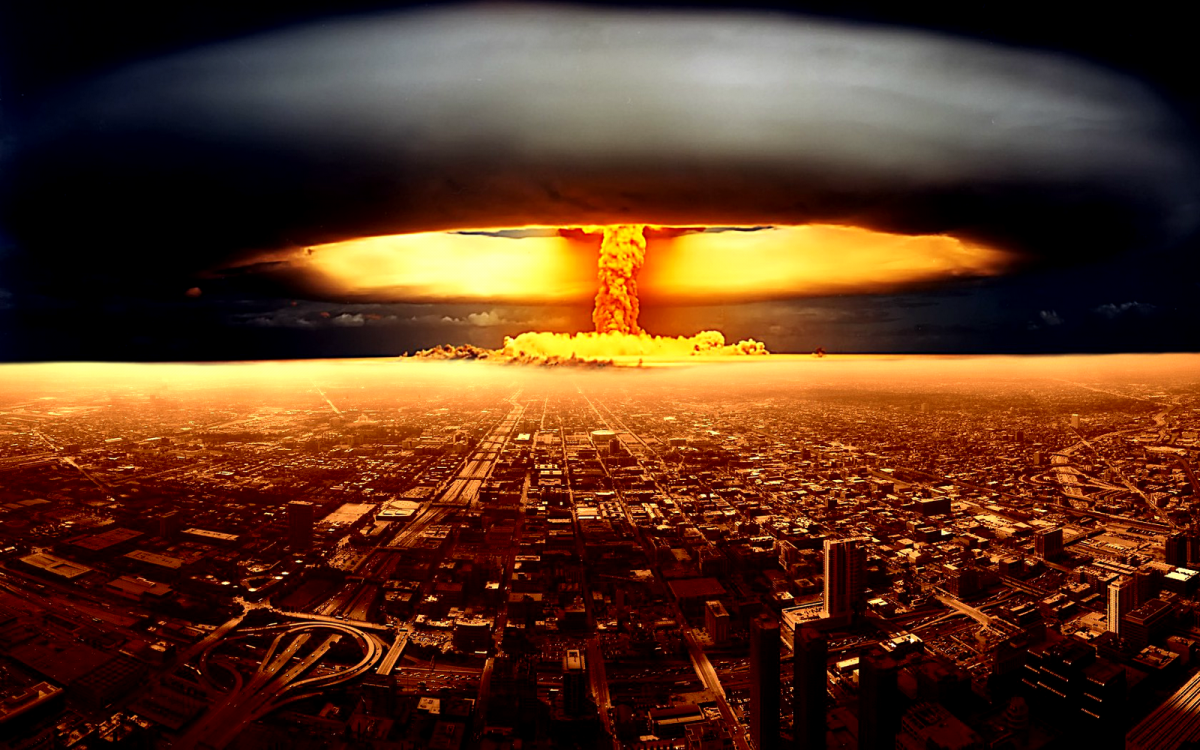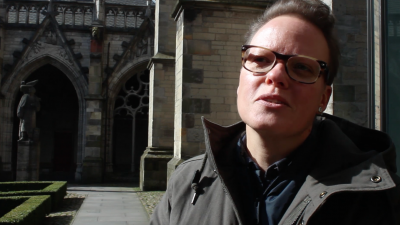Pop Culture Matters
An alien invasion sowing blood and destruction. Natural disasters wiping out nations, and gargling zombies feasting on terrified people like you and me. We love watching these abhorring scenes, and shudder with delight. But why is that? In the fourth and last lecture of Pop Culture Matters, media scholar Dr Laura Copier explains why we find the apocalypse so fascinating, and how we give meaning to it in popular culture. Do we just love the blood and gore? Or do these apocalyptic motives actually tell us something about our society?
THE BOOK
Copier takes the Bible as a starting point to study the meaning of apocalyptic themes in popular culture. The biblical story is not the first apocalyptic narrative, but forms the main reference for apocalyptic films, according to Copier. The prophetic Book of Revelation in the New Testament, or The Apocalypse of John, in which the end times are revealed to St. John, resonates in many modern end-of-time scenarios. Copier stresses the importance of the 'revelation'-theme in the biblical tradition, as it means 'uncovering' something that was hidden: that is, the end. The revelation exposes the path towards a final judgment, showing how to receive salvation and a place in heaven.
The prediction of the Apocalypse shows that it is almost, but not yet too late. There is still time to ward off the ultimate catastrophe. Copier explains that these narratives provide us with meaning, and not only to believers. In a secular context, the apocalyptic threat is comparable to the danger of climate change. There is still time to avert the collapsing of the earth, but if we do nothing the climatic apocalypse will happen. So, the apocalypse uncovers the truth about something that would otherwise be left in the dark: namely, our own ending. It gives our existence a storyline that makes sense.

Films of revelation
Modern expressions of apocalyptic fears can be seen for instance in the 'Doom's Day Clock' by the Bulletin of the Atomic Scientists, showing humanity that it is “two-and-a-half minutes before midnight”. Another example of apocalyptic concern are the debates on the internet, centred around the question whether president Donald Trump is the long-prophesied Antichrist: the agent of the world's destruction. Because America failed to be the new 'Garden of Eden', despite puritan hopes. American apocalyptic thinkers interpret Trump's presidency as a sign of the end, and see the Antichrist as an emblem heralding the fall of mankind. Both examples demonstrate the belief that time is running out, and the world is coming to an end. The sincerity of these fears shows that the theme of a near ending is still very much present in modern times, and also very real to many people.
Moreover, not only religious people concern themselves with the apocalypse. Secular people are enticed by the idea of the world's end, too. Hollywood reflects this broader trend of apocalyptic fascination in movies such as War of the Worlds, The Day After Tomorrow, The Planet of the Apes, and many, many more. Although these movies have similar apocalyptic motives, they differ slightly from the biblical narration. The movies get a typical Hollywood ending, whereas the biblical story typically leaves this out. In the Bible, salvation is only possible due to divine absolution, and only in the afterlife. But in the Hollywood variation of the apocalypse, there is always a (male) action figure who saves the world on earth, making the end of the story much less dreary and frightening. How reassuring! We might have faced mass destruction, but thanks to Tom Cruise, everything is O.K. An alternative cinematic depiction of the apocalypse is for instance Melancholia by Lars Von Trier.

The end
A complete story needs a beginning, a middle and an end. The apocalyptic theme provides a coherent pattern of human life in general, a linear overview of where we are as a human race, and how things are going to be. Reinterpreted in popular culture, the biblical frames and traditions give structure to the lives we live in a complex society. Imagining an end gives structure to our life story as a whole. It helps us making sense of a chaotic existence, and shows us where to go and how to solve seemingly unsolvable problems. So, in a paradoxical way, being threatened by 'the end', makes us feel less scared about the actual finishing point. Or, as Copier points out, it does not actually mean the ending has to happen. The theme of the apocalypse can be regarded as a gloomy, thrilling way to make sense of our own story. But in the end, our happiest ending could be that the end hardly ever comes to pass.
You can watch the full lecture here
This was the last Pop Culture Matters lecture. If you want to watch back all the lectures or read quick summaries, please click here for more info.






